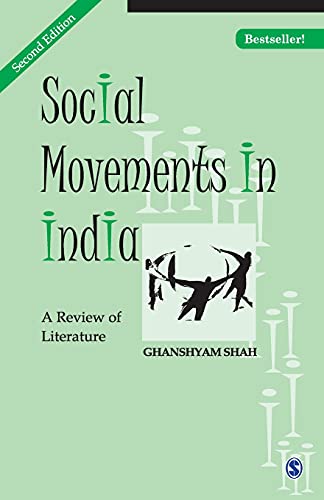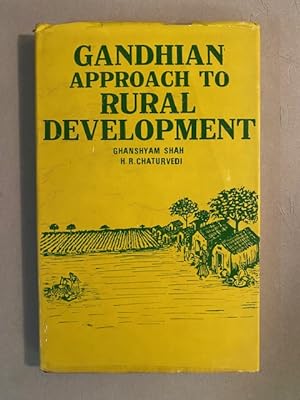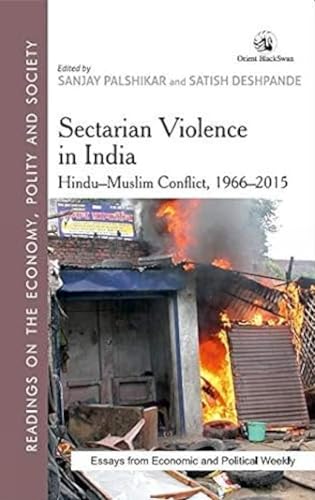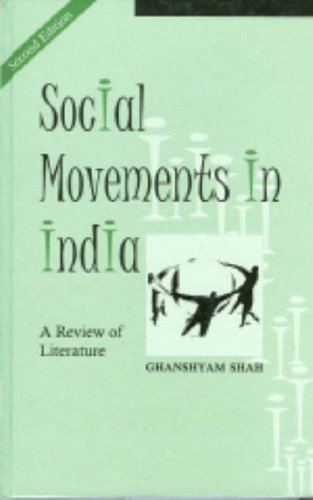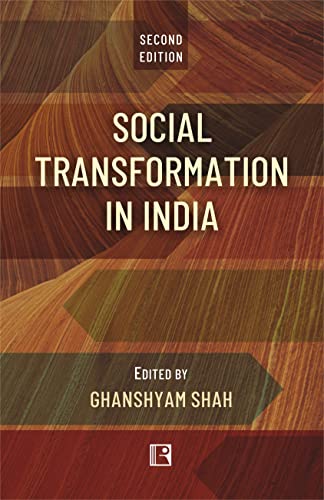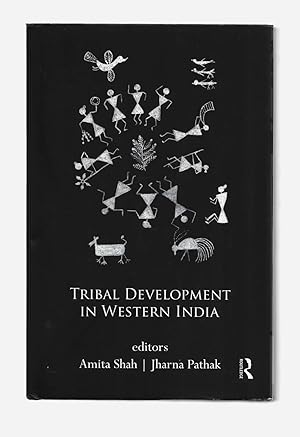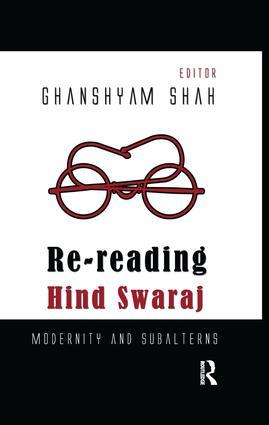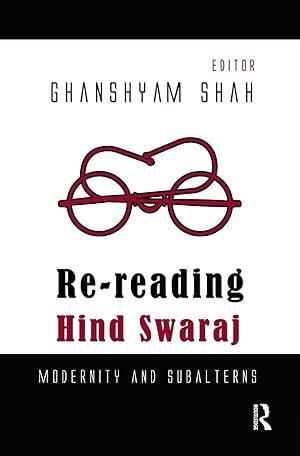Ghanshyam Shah Social Movements in India (19 results)
Product Type
- All Product Types
- Books (19)
- Magazines & Periodicals
- Comics
- Sheet Music
- Art, Prints & Posters
- Photographs
- Maps
-
Manuscripts &
Paper Collectibles
Condition
Binding
Collectible Attributes
Free Shipping
Seller Location
Seller Rating
-
Social Movements in India: A Review of Literature
Published by SAGE Publications Pvt. Ltd, 2004
ISBN 10: 0761998349ISBN 13: 9780761998341
Seller: medimops, Berlin, Germany
Book
Gut/Very good: Buch bzw. Schutzumschlag mit wenigen Gebrauchsspuren an Einband, Schutzumschlag oder Seiten. / Describes a book or dust jacket that does show some signs of wear on either the binding, dust jacket or pages.
More buying choices from other sellers on AbeBooks
New offers from US$ 35.81
Used offers from US$ 3.31
Also find Softcover
-
SOCIAL MOVEMENTS IN INDIA: A Review of Literature SECOND EDITION
Published by Rawat, Jaipur, Rajastan, 2023
ISBN 10: 8131612910ISBN 13: 9788131612910
Seller: Books in my Basket, New Delhi, India
Book
Soft cover. Condition: New. Second. ISBN:9788131612910.
More buying choices from other sellers on AbeBooks
New offers from US$ 6.08
-
SOCIAL MOVEMENTS IN INDIA: A Review of Literature SECOND EDITION
Published by Rawat, Jaipur, Rajastan, 2023
ISBN 10: 8131612902ISBN 13: 9788131612903
Seller: Books in my Basket, New Delhi, India
Book
Hardcover. Condition: New. Second. ISBN:9788131612903.
More buying choices from other sellers on AbeBooks
New offers from US$ 16.85
-
GANDHIAN APPROACH to RURAL DEVELOPMENT: The Valod Experiment
Published by Ajanta Publications, Jawahar Nagar Delhi, India, 1983
Seller: The Maine Bookhouse, Oxford, ME, U.S.A.
First Edition
Hardcover. Condition: Good. 1st Edition. - FIRST EDITION- HARDCOVER, GOOD; light wear. DUST JACKET, GOOD; light edgewear, unclipped and now wrapped in new archival sleeve. 140 pp. with Appendix and Index. SOCIAL STUDIES, HOUSING, COMMUNITY, COMMUNITIES, GANDHI'S POLITICAL ACTIVISM, ORGANIZED ACTION, POLITICS, NONVIOLENCE, NONVIOLENT RESISTANCE, Government Relations, POLITICAL, RELIGIOUS, MORAL, SPIRITUAL, IDEALOGICAL, IDEOLOGY, IDEOLOGIES, EGALITARIAN SOCIAL ORDER, SOCIETAL, SOCIAL STRUGGLES, HOME RULE MOVEMENT, MOVEMENTS initiated and led by MAHATMA GANDHI and his contemporaries in INDIA, INDIAN GOVERNMENT, Specifically The Vedchhi Intensive Area Scheme (VIAS), GRASSROOTS planning launched by a group of dedicated workers, in Valod Taluka of Surat district, in Gujarat, India.
-
Sectarian Violence in India: Hindu-Muslim Conflict, 1966-2015
Published by Orient BlackSwan, 2019
ISBN 10: 9352875850ISBN 13: 9789352875856
Seller: Vedams eBooks (P) Ltd, New Delhi, India
Book First Edition
Soft cover. Condition: New. 1st Edition. Contents: Introduction: The Social Sciences and the Economic and Political Weekly on Hindu-Muslim Conflict/Sanjay Palshikar and Satish Deshpande. Section I: General Surveys of Sectarian Violence. Introduction to Section I.1. Communal conflict after 1950: A Perspective/Asghar Ali Engineer. 2. Secularism and communalism/Imtiaz Ahmad. 3. Communal violence in India/Gopal Krishna. 4. Revisiting communalism and fundamentalism in India/Surya Prakash Upadhyay and Rowena Robinson. Section II: Theoretical and Conceptual Issues. Introduction to Section II. 5. An electoral theory of communal riots?/Ashutosh Varshney. 6. Communal riots in India/Steven I. Wilkinson. 7. Development of an institutionalised riot system in Meerut City, 1961 to 1982/Paul R. Brass. 8. Muzaffarnagar riots: perils of patronage democracy/Ward Berenschot. 9. Institutional communalism in India/Pritam Singh. 10. Communalism and the consuming subject/Arvind Rajagopal. 11. Always already secular? Afterthoughts on the secular communal question/Sasheej Hegde. 12. Left secularists and communalism/Dharma Kumar. 13. In Defence of the fragment: Writing about Hindu Muslim Riots in India today/Gyanendra Pandey. Section III: Communal Politics. Introduction to Section III. 14. Social and economic compulsions behind communalism: a case study/Ratna Dutta.15. Religion and politics: role of Islam in modern India/Moin Shakir.16. Muslim communalism/Romesh Thapar. 17. Political economy of communalism in contemporary India/Imtiaz Ahmed.18. Congress (I), communist parties and communalism/A. R. Desai.19. Cultural context of communalism in India/Rajni Kothari. 20. Muslims in a multi-religious society/Asghar Ali Engineer. 21. The Woman as communal subject: Rashtrasevika Samiti and Ram Janmabhoomi Movement/Tanika Sarkar. 22. Gender and communal riots/Bhavna Mehta and Trupti Shah. 23. Indian Muslims since partition/Balraj Puri. 24. Putting Gujarat in perspective/Steven I. Wilkinson. 25. Communal upheaval as resurgence of social Darwinism/Jan Breman. 26. Memories, saffronising statues and constructing communal politics/Badri Narayan. 27. Judicial inquiries into communal violence: relevance of Vishnu Sahai Commission/Rajeshwari. 28. Communal Riots in Uttar Pradesh/Badri Narayan. Section IV: Accounts and Analyses of Specific Riots. Introduction to Section IV. 29. Communal Riots in Gujarat: Report of a preliminary investigation/Ghanshyam Shah. 30. Communal violence in India: a study of communal disturbance in Delhi: The Riot of 5 May 1974/Gopal Krishna. 31. Understanding communal violence: Nizamuddin Riots/Pradip Datta, Biswamoy Pati, Sumit Sarkar, Tanika Sarkar and Sambuddha Sen. 32. Khurja Riots 1990-91: Understanding the conjuncture/Uma Chakravarti, Prem Chowdhury, Pradip Datta, Zoya Hasan, Kumkum Sangari and Tanika Sarkar. 33. Communal violence in Jaipur/Shail Mayaram. 34. Of communal consciousness and communal violence: impressions from post-riot Surat/Sudhir Chandra. 35. Identity, communal consciousness and politics/Ghanshyam Shah. 36. When riots are not merely local bringing the state back in, Bijnor 1988-92/Amrita Basu. 37. The Bijnor Riots, October 1990: Collapse of a mythical special relationship? Roger Jeffery and Patricia M. Jeffery. 38. Hashimpura Killings: Is there any Hope of Justice?/Iqbal Ansari. Since Independence, India has witnessed communal clashes between Hindu and Muslim groups. Commentators and social scientists in India have been understandably concerned with these clashes, as well as the peculiar nature of such communal violence in the country. Violent incidents continue to rock the nation, making this field a particularly important area of study. Sectarian Violence in India offers a cumulative account of social science research on the crucially important subject of communal violence from the late 1960s until about 2015. It brings together a critical selection of articles on sectarian violence in the post-Independence era from the Economic and Political Weekly, a journal.
-
Caste and Class in India (Reprint)
Published by Rawat Publications, 2012
ISBN 10: 8170332052ISBN 13: 9788170332053
Seller: Vedams eBooks (P) Ltd, New Delhi, India
Book
Hardcover. Condition: New. Contents : Preface. Introduction : some reflections on caste and class in India K.L. Sharma. 1. Caste, class and politics in colonial Bengal : a case study of the Namasudra movement of 1872-1937/Sekhar Bandyopadhyay. 2. Caste and power in West Bengal/Ranabir Samaddar. 3. Caste-class situation in rural West Bengal/Srijnan Halder. 4. Caste, class and landholding in the analysis of technology and agricultural production in Bihar/Shaibal Gupta. 5. The Orissan society : past trends and present manifestations/Bhairabi Prasad Sahu. 6. Caste and Kulaks in Eastern India : a comparison of Bihar, Orissa and West Bengal/Anjan Ghosh. 7. Kanshi Ram and the Bahujan Samaj party/Gail Omvedt. 8. Caste, land and political power in Uttar Pradesh/Imtiaz Ahmad and N.C. Saxena. 9. Feudalism, caste and class in Rajasthan/K.L. Sharma. 10. Caste sentiments, class formation and dominance in Gujarat/Ghanshyam Shah. 11. Caste and class in Maharashtra/Sharad Patil. 12. Class, caste and ideology in Maharashtra/Rajendra Vora and Suhas Palshikar. 13. Agrarian tensions in rural Marathwada : a case of the Shiv Sena/Surendra Jondhale. 14. Growth, inequities and tensions : a case study of Sangli district, Maharashtra/S.P. Punalekar. 15. Caste, class and politics in the Tanneries of Kolhapur/Gopal Guru. 16. Caste and land in colonial South India/A. Nagaraja Naidu. 17. Caste and class in rural Andhra : a historical perspective/A. Satyanarayana. 18. The formation of caste society in Kerala : historical antecedents/Rajan Gurukkal. 19. Caste-class situation in India/A.B. Bardhan. 20. Caste, class and social consciousness : reflections on contemporary Indian situation/Javeed Alam. "Caste and class as topics of research may cover almost entire gamut of sociological inquiry. The book, caste and class in India, is an outcome of a very well organized and academically fruitful exercise under the auspices of the TDSS, Pune. The papers included in the volume, covering nine states, highlight the complex dynamics of the nexus between caste and class. Caste as seen from the class point of view and class as seen from the caste point of view make it explicit that the two inhere each other historically as well as in contemporary India as inseparable aspects of India s social formation. However, the dynamics of the nexus have varied from region to region. This is how West Bengal presents a different scenario compared to Bihar and Uttar Pradesh. What is today in the form of casteism in Bihar is not found elsewhere in the country. Rajasthan, despite its feudal legacy, has witnessed remarkable socio-economic and political changes in the post-independence period, and this is much less evident in the case of Bihar or Uttar Pradesh. "A lot of anti-Brahmin movements in the southern states and Maharashtra before independence created a great deal of socio-political awakening among the masses. The movements organized by the left parties after 1947 have further added to the persisting anti-Brahmin and anti-landlord thinking among the dalits. Despite all these antithetical tendencies, caste persists, and in some cases even the upper caste leaders of the left parties have been found as the biggest landlords in Kerala and some other parts of India. Caste seems to have its decline and revival at the same time, and this is possible because caste is appropriated by a select group of people to their economic and political advantages. The volume highlights on these and several other aspects of caste-class and class-caste nexus from historical as well as contemporary perspective. It would help teachers, researchers, students and policy-makers immensely by providing a panoramic view of the interpenetrating but not mutually reducible phenomenon of caste and class in India". (jacket).
-
Social Movements in India
Published by Sage Publications, 2004
ISBN 10: 0761998330ISBN 13: 9780761998334
Seller: Books Puddle, New York, NY, U.S.A.
Book
Condition: Used. pp. 281 + 1 Index 2nd Enlarged Edition, 6th Printing.
More buying choices from other sellers on AbeBooks
Used offers from US$ 55.54
-
Social Transformation in India: Essays in Honour of Professor I.P. Desai
Published by Rawat Publications, 2021
ISBN 10: 8131611078ISBN 13: 9788131611074
Seller: Vedams eBooks (P) Ltd, New Delhi, India
Book
Hardcover. Condition: New. 2nd Edition. Contents: 1. Introduction: I.P. Desai and Social Transformation/Ghanshyam Shah. 2. I.P. Desai and the Sociology of India/Ramkrishna Mukherjee. 3. Social Policy, Development and Democracy/Rajni Kothari. 4. Changing Values in India Today/M.N. Srinivas. 5. Social Movements and the Paradigm of Functional Analysis/M.S. Gore. 6. Social Processes and Dimensions of Indian Nationalism/Yogendra Singh. 7. Rural Development and Human Rights of Agrarian Poor in Independent India/A.R. Desai. 8. Usury in Western India: State Policy and Peasant Resistance, 1876-1947/David Hardiman. 9. The Artisanal Origins of Surat s Contemporary Industrialization, 1870-1950/Douglas E. Haynes. 10. The Future of Caste in India: A Dialogue/D.L. Sheth. 11. The Judicial and the Sociological View of the Other Backward Classes/A.M. Shah. 12. A Town, A Caste, and Two Decades of Capitalist Transformation in South Gujarat/Hein Streefkerk. 13. Caste in Changing Society: A Study of Kolis of South Gujarat/Arjun Patel. 14. Social Change and the Marriage System of the Anavil Brahmans of South Gujarat/Klass W. van der Veen. 15. Sociology of Dalit Autobiography/S.P. Punalekar. 16. Office without de facto Power: A Study of Social Justice Committee in Gujarat/Ghanshyam Shah. 17. Caste, Class and Violence in Rural India/Pravin Sheth. 18. Genesis of Tribal Problem/Vidyut Joshi. 19. Gender Dimension in Family Studies/Neera Desai. 20. Reconstituting Private Life: The Making of the Modern Family in Bengal/Pradip Kumar Bose. 21. Labour Nomads in South Gujarat: Wage Hunters and Gatherers/Jan Breman. 22. Trade Unions and Class Mobilization of Workers: Towards a Theory of Social Polarization and Mobilization/Pravin J. Patel. 23. The Political Economy of Places of Worship/Imtiaz Ahmad. 24. Children of the Same God: A Spiritual Approach to Social Transformation/N.R. Sheth. 25. The Concept of the Desired Type of Society and the Problems of Social Change/I.P. Desai. Social transformation is not an abstract utopia of social activists. It calls for analyzing social forces in historical and cultural context. There is no unilinear direction for change. It is a complex and multidimensional process. India is passing through a rapid social upheaval. The questions need to ponder over are: On which way we are going? What is the nature of social transformation? Who are the gainers and losers of development? What new socio-economic forces and value systems are emerging in the country? What role social scientists and other intellectuals play in the process of social transformation towards better social order? Social scientists of different disciplines, viz., sociology, anthropology, political science, history, etc., from India and abroad, discuss these and similar other questions in this volume. This is a felicitation volume in honour of late Professor I.P. Desai, the Founder-Director of Centre for Social Studies, Surat. Prof. Desai was an eminent sociologist who wrote several books on family, education, social movements, caste and tribe. He was concerned with building desired society . In this second edition, a new chapter by I.P. Desai, The Concept of the Desired Type of Society and the Problems of Social Change has been included. This is relevant today for social activists as well as academia concerned with sensitizing us towards the prevailing social problems and revive our concern for social change.
-
Tribal Development in Western India
Published by Routledge India, 2014
ISBN 10: 0415710065ISBN 13: 9780415710060
Seller: killarneybooks, Inagh, CLARE, Ireland
Book First Edition
Hardcover. Condition: Very Good. Dust Jacket Condition: Good. 1st Edition. Hardcover, xxv + 344 pages, index, NOT ex-library. A very good copy in a good dust jacket. Interior shows minor wear, clean and bright throughout with unmarked text and firm binding. Boards with small indentations to upper edge of rear panel, short creases to spine ends. Dust jacket is untorn, with signs of regular shelfwear, scuffed tips of corners and spine, small indentations to edges. -- Tribal communities in western India, as elsewhere in the country, have been facing increasing marginalisation and poverty. This is so despite a relatively better record of social movements and work by civil society organisations among them and their political inclusion. Further, the existing literature on tribals focuses more on their socio-cultural situation and less on their economic and human development. Addressing this gap in scholarship, this volume details the processes of tribal development and associated challenges in Gujarat, often viewed as a high-growth economy. Rich in interdisciplinary, empirical analyses, the book comprehensively addresses three important aspects of tribal development - human development, economic opportunities and governance. It critiques recent policy diagnoses and interventions, rather than evaluate policy-outcomes. The volume traces the genesis of continued marginalisation of tribals in the country, and contributes to the ongoing discourse on integrative tribal development. The work will interest scholars and students of development studies, tribal studies, economics, sociology, social work, as also policy-makers, activists, and governmental and non-governmental organisations in the field. -- Contents: 1. Introduction / [Perspectives on Tribal Development Policies in India; Tribal Situation in Gujarat; About This Volume] 2. Poverty and Livelihood among Tribals: Status, Opportunities, and Strategies [Emerging Perspectives on Tribal Development; Poverty and Multiple Deprivations Among Tribal Communities in Gujarat; Scope for Forest-based Livelihood Opportunities; Other Livelihood Options; Summary and Policy Implications] 3. Employment and Income Generation among the Tribal Population: Some Critical Issues [Employment Status of Tribal Population in Gujarat; Towards Productive and Sustainable Employment for Tribals; Role of Mahatma Gandhi National Rural Employment Guarantee Programme; Institutional Dimension of Employment Generation; Ensuring Decent Employment] 4. Schooling of Tribal Children: Current Scenario and Challenges [Levels of Literacy; Inter-district and Inter-group Variations in Literacy Among Tribals; Inter-district Inter-group Variations in School Attendance Among Tribal Children; Learning Achievement; Education Profile of Predominantly Tribal Blocks; Physical Access to Schooling; What Hinders Participation of Tribal Children in Schooling; Language of Instruction; Quality of Education; Teacher Factor; Tribal Girls' Education; Underdevelopment of Tribal Areas; State's Efforts to Remedy the Educational Disadvantages] 5. Health Status of the Tribal Population [Vital Statistics; Mortality Rate Among Children; Status of Maternal Health; Morbidity Among Tribal Communities; Status of Drinking; State Support System for Health Care; Government Programmes] 6. Agroforestry in Tribal Areas: Moving Towards Sustainable Agriculture? [Subsistence Agriculture and Constraints in Tribal Areas; Potential Role of Agroforestry in a Tribal Economy; Objectives and Methodology; IHDP in the Tribal Areas of Gujarat; Characteristics of Tribal Areas of Gujarat; Agroforestry in the Study Area: Some Early Assessments; Policy Suggestions] 7. Dairy Farming as an Option for Strengthening Livelihoods: A Case of Poor and Landless Tribal Households 8. Livelihoods and Financial Behaviour of Tribal Households: Linking Experience and Strategies 9. Fiscal Financing for Tribal Development 10. Land Acquisition and Displacement among Tribals, 1947-2004 11. Governance.
-
Shah, G: Re-reading Hind Swaraj
Published by Taylor & Francis, 2015
ISBN 10: 1138659835ISBN 13: 9781138659834
Seller: moluna, Greven, Germany
Book Print on Demand
Condition: New. Dieser Artikel ist ein Print on Demand Artikel und wird nach Ihrer Bestellung fuer Sie gedruckt. Ghanshyam Shah is National Fellow, Indian Institute of Advanced Study, Shimla and formerly Professor, Social Sciences, Jawaharlal Nehru University, Delhi and Director and Professor, Centre for Social Studies, Surat, Gujarat.M.
-
Re-reading Hind Swaraj
Published by Taylor & Francis, 2013
ISBN 10: 0415662109ISBN 13: 9780415662109
Seller: moluna, Greven, Germany
Book Print on Demand
Gebunden. Condition: New. Dieser Artikel ist ein Print on Demand Artikel und wird nach Ihrer Bestellung fuer Sie gedruckt. Ghanshyam Shah is National Fellow, Indian Institute of Advanced Study, Shimla and formerly Professor, Social Sciences, Jawaharlal Nehru University, Delhi and Director and Professor, Centre for Social Studies, Surat, Gujarat.M.


